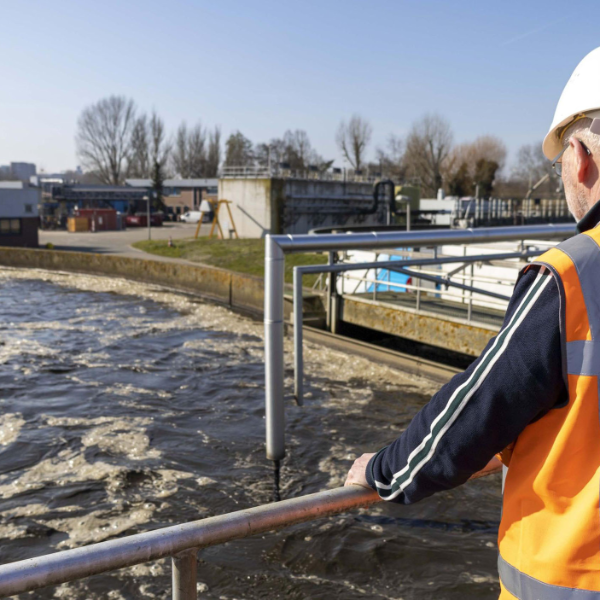Leiden Noord Sewage Treatment Plant will get innovative installation for the removal of drug residues

Leiden Noord Sewage Treatment Plant will get innovative installation for the removal of drug residues
The Board of Directors of the Rijnland Water Authority has approved credit funding for the construction of a PACAS installation for Leiden Noord Sewage Treatment Plant (STP). With the financial support from the Ministry of Infrastructure and Water Management, Witteveen+Bos will supervise the project and team up with contractor ADS Groep to execute the work. Rijnland will be the first water authority in the Netherlands to realise an installation in which all waste water is treated. The initiative will enable the parties involved to gain knowledge and experience with this technique.
Drug residues in surface water are posing a growing problem. One of the ways in which Rijnland aims to improve water quality is by introducing an additional step in the treatment process at the existing STP. This new step will remove drug residues and other micro-contaminants from urban waste water.
Social challenge
The municipality of Leiden sees this significant step in the treatment of waste water at the Leiden Noord STP as a welcome development. Alderman Ashley North (Sustainability, Mobility and Management of Public Space): ‘This additional step in waste-water treatment is enabling Rijnland to improve the quality of the water in Leiden. Drug residues affect the fauna and flora living in the water, so the introduction of PACAS will give water quality a positive boost.’
Rijnland’s contribution goes further than ensuring good water management. Our core activities are closely tied to the obligations of a socially responsible government. Thea Fierens, Rijnland Water Authority: ‘Rijnland recognises this as an important social challenge. There is also general endorsement from a European perspective that the Netherlands is following the Rhine catchment areas in Germany and Switzerland in taking steps to remove drug residues.’
Involvement of water authorities and the pharmaceutical chain
Together with other water authorities, partners in the pharmaceutical chain must also join forces to prevent drug residues from entering the water system. To facilitate this, Rijnland will be actively engaged in discussions with hospitals, care centres, pharmacists and GPs.
The PACAS project reflects the increasing concern for micro-contaminants throughout Europe. The European Union is currently preparing an integrated strategic approach to tackle drug residues, for example, and the European Green Deal for a carbon-neutral Europe in 2050 includes an action plan aimed at addressing drug residues, among other things.
What is PACAS?
PACAS stands for Powdered Activated Carbon in Activated Sludge. This means that activated carbon is added to the aeration tank in doses. The powdered carbon consists of a highly porous material to which all kinds of chemical substances bind. The powdered carbon mixes with the sewage sludge and is then removed together with the sludge to be incinerated at the HVC waste-to-energy plant in Dordrecht.
More Information?
